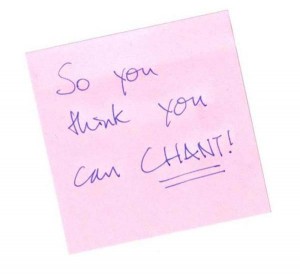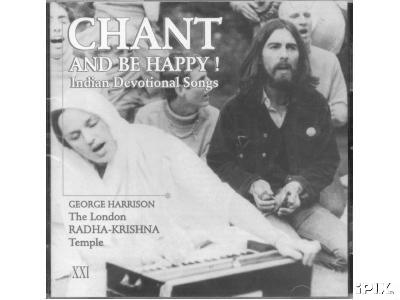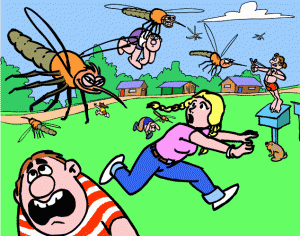|
|
 Q&As – #5
Q&As – #5 
Here’s the fifth question from the devotees in the CIS, which is in two parts:
Question 5-1.
Hare Krishna, dear Hari Sauri prabhu! Please, accept my humble obeisances!
Please, tell me what can be done if I want to take a daily service to Sri Krishna, to go to lectures, attend programs and participate in sankirtana, but reading the morning japa is not going well. If this oblation make my body feel bad, and I’ m not rather of myself, because “bad” thoughts all time go to my mind, and the feeling of happiness at the end of the 4th circle is not always achieved, and if achieved, then quickly disappears, and sometimes I cannot even read the 3 laps? Although I can easily read 4-8 rounds in daily or evening time mentally.
Answer:
The basis for all our other service is the chanting of the Holy names.

Srila Prabhupada prescribed the chanting of a minimum 16 rounds per day if we want to make steady advancement. We can judge whether we are making progress by our desire and ability to chant at least 16 rounds daily. In Chaitanya Caritamrta Srila Prabhupada says that if we cannot chant 16 rounds daily we are in a diseased condition of spiritual life.
There is a cartoon Srila Prabhupada once saw in an American newspaper. An old man and an old woman were sitting on a park bench watching a group of devotees chanting. The old woman turned to the old man and said, “Chant, chant, chant!” The old man replied, “Can’t, can’t, can’t!” Srila Prabhupada cited this in a class and to the laughter of the devotees he said that unless one is on the liberated platform, he cannot chant the Holy Names. So conversely, if we are chanting regularly, then we should know we are on the transcendental platform.
So I would recommend that before any other service, your chanting should come first. And then whatever you can do after that is fine.
If you feel that your chanting is artificial and you often don’t have any feeling for it, it doesn’t matter. In the beginning we may not have a higher taste and it may be difficult to chant. But by practice you can gradually develop a good taste for it.
The example is given of a man who has jaundice. When you have jaundice you lose your taste for sugar; in fact it becomes very bitter–actually the sugar is not bitter but the diseased man’s taste is distorted so that it seems bitter. Nevertheless, eating rock sugar is the cure for jaundice. As the disease diminishes, the taste of the suger comes back. When the man is healthy, the sugar again tastes very sweet. Similarly, we are in a diseased condition of material existence and we do not like to glorify and take shelter in the Holy Name, which is Krsna Himself. Still we should chant because chanting is both the means (cure) and the goal.
Even if it feels artificial, it will still act because the Holy Name is real, it is not an illusion. It is our bitter perception and our disturbed mind that is not real and that has to be changed. By constant chanting the change will come naturally.
Question 5-2:
And also, please, give me advice about mosquito problem. There are bugs around my place and every summer evening, in spite of any efforts, the mosquitos penetrate into the apartment. It is impossible to suffer them but having knowledge to use different fumigator is unpleasant.
Answer:
Srila Prabhupada advised us not to kill any living being if we can avoid it. However, if we are attacked,

we can defend ourselves.

When I was with Srila Prabhupada we used a number of methods to stop them attacking His Divine Grace while he was translating in the night:
[From Transcendental Diary Vol 1]
January 18 1976 – Mayapur
In the early evening, just on dusk, a few of the senior devotees and myself were sitting with Prabhupada in his room, conversing. From a distance and gradually drawing nearer, we heard the loud trumpeting of a conch shell accompanied by bell ringing and the chanting of mantras. Bhavananda Maharaja laughed and told Prabhupada it was Anantarama Sastri, an Indian devotee in his mid-twenties who joined us last year with three other sastris. Unfortunately the others left, but he has stayed on. As his name implies, he is very knowledgeable in the scriptures and well-versed in the performance of various types of puja. He can also quote practically any Sanskrit verse from memory.
Bhavananda explained that each evening as the sun goes down, he tours the building, floor by floor, with a bell, conch, and a large, clay incense burner, chanting various mantras to keep away ghosts and other subtle beings.
The sound grew louder and Prabhupada smiled in welcome as Sastri entered his room in a cloud of frankincense, the reverberations of the conch temporarily drowning out our conversation. It was an impressive ritual, made more so by Sastri’s ability to both blow air through his mouth and suck it in through his nose at the same time, thus keeping the conch blowing uninterruptedly for several minutes. He walked around both rooms, waving a bamboo fan over his clay bowl to disperse the fragrant smoke. It also acts as an effective mosquito repellent. After a couple of minutes he respectfully backed out the door and continued his nightly round.
